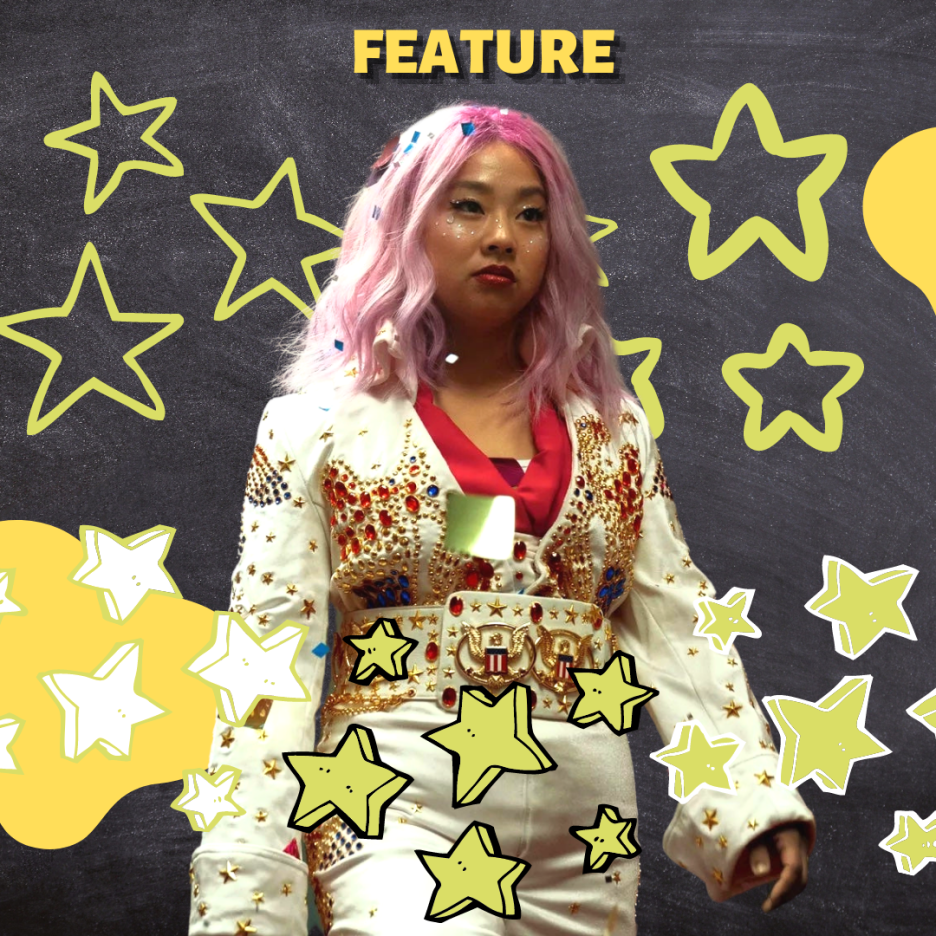Bad Takes on 'Everywhere Everything All At Once:' When Critics Erase Asian and Asian American Contributions to Film

I was scrolling through Twitter this morning when I saw an article from Variety celebrating the Michelle Yeoh-starring Everything Everywhere All At Once smashing the box office.
Despite being a virtually unknown art house A24 film made on a $25 million budget, Everything Everywhere All At Once went on to achieve widespread acclaim from critics and audiences purely through the power of word-of-mouth.
Well, not every critic loved it.
Though the Variety reporter praised the film, the quote Variety pulled from the article received instant blowback from Twitter users. The quote read: "'Everything Everywhere All at Once' has grossed $35 million in North America, indicating that adult audiences will return to the big screen for the right movie - and that ticket buyers really love the concept of a multiverse."
"Everything Everywhere All at Once" has grossed $35 million in North America, indicating that adult audiences will return to the big screen for the right movie — and that ticket buyers really love the concept of a multiverse. https://t.co/cZ535sTi2D
— Variety (@Variety) May 2, 2022
The article solely attributes the film's success to its use of the multiverse, a concept the reporter ascribes to Marvel films like Spider-Man: Into the Spider-Verse, Spider-Man: No Way Home and the upcoming Doctor Strange sequel." Sure, the Daniels' use of and way of shooting the multiverse in Everything Everywhere All At Once is novel and ingenious, I - and many users on Twitter - are willing to bet that the multiverse is not what ultimately convinced us to watch the film.
However, there's something even more insidious to this take than simply getting things wrong.
Asian and Asian American Erasure in Film
I was fortunate enough to see Everything Everywhere All At Once in an early screening with two friends of mine who are also AAPI film and media makers. When we walked out of the film, the three of us were floored: Finally, there was a spectacular Asian American film that didn't revolve around the usual topic of the immigrant struggle.
Sure, Michelle Yeoh's Evelyn Wang is an immigrant, and at times the story touches upon her and her husband, Ke Huy Quan's character Waymond Wang's, efforts to give their daughter, Stephanie Hsu's Joy Wang, a better life. However, being immigrants isn't all there is to the Wang family story.
Instead, we also get a wild sci-fi romp that more importantly impresses upon viewers the value in approaching the world with kindness and finding the brightness in a life that may seem hopeless.
The innovative storytelling and unique humor of Everything Everywhere All At Once can also be indelibly attributed to the Daniels' exceptional sensibilities and personalities. The directing duo, comprising Daniel Kwan and Daniel Scheinert, and I have no doubt that Kwan's Asian-American background contributed to how real and grounded Evelyn's character feels - Evelyn reminded me so much of my own mother and other family matriarch figures in my life that I felt an urge to call my mother after the screening.
Scheinert described the moment when the two directors decided to switch the main protagonist from the more stereotypical man to his long-suffering wife, Evelyn:
"We have these very strong moms and grandmoms, and we're also both kind of dopey, gentle guys ourselves. As soon as we switched it, we were like, 'Oh, now the husband and wife characters are more relatable. Why on earth didn't we write it this way from the get-go?'"
All of this is to say that many of the players who contributed to Everything Everywhere All At Once were Asian and Asian American, and that by zeroing in on the film's use of the multiverse, critics are effectively erasing these contributions to the film's success.
Nevermind that Ke Huy Quan came out of acting retirement to do this film. Nevermind that both Quan and Yeoh did their own stunts, and that Yeoh considers Everything Everywhere All At Once "something [she's] been waiting for for a long time that's going to give [her] the opportunity to show [her] fans, [her] family, [her] audience what [she's] capable of...Finally, somebody understood that [she] could do all these things." And Yeoh's got a decades-long career!
Why Is Asian and Asian American Erasure Insidious
I don't want you to think that I'm attributing all of Everything Everywhere All At Once's success to Asian and Asian American talent. The engaging story, powerful themes, and masterful manipulation of audience emotion all have to do with the movie's effectiveness, too. There are so many reasons why audiences have been braving theaters for this film.
However, erasing Asian and Asian American contribution to Everything Everywhere All At Once means that when studios look back on the film's success, they may overlook the creative team's influence on the film - how such a film would've been completely different if given to another set of (read: white) hands.
For Asian and Asian American filmmakers to begin building a presence in Hollywood, their efforts and success need to be acknowledged. Sure, multiverses are cool, but so are new, extraordinary voices in film, too. For Hollywood to continue making art house films capable of drawing in excited, passionate audiences like Everything Everywhere All At Once did, please put your money where your mouth is and show appreciation to diverse filmmakers when they do good work.
For more entertainment news and commentary, check out Enstarz! We bring you the latest on your favorite celebrities, TV shows, and films.
© 2026 Enstarz.com All rights reserved. Do not reproduce without permission.






